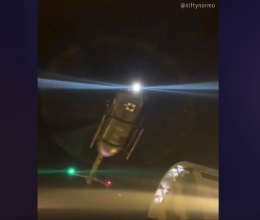Sometimes, in a Freedom of Information Act case, the mere disclosure that the government has, or doesn’t have, documents responsive to a request would disclose facts that the government is entitled to keep secret. For example, the courts ruled that the CIA could refuse to confirm or deny that it had any records relating to a ship called the Hughes Glomar Explorer (which turned out to be a ship the CIA was using to try to salvage a sunken Soviet submarine) because the mere disclosure that it had such records would reveal that the ship had a connection to the CIA. Phillippi v. CIA, 546 F.2d 1009 (D.C. Cir. 1976). From that case, a response to a FOIA request of “we cannot confirm or deny that we have any responsive records” has come to be called a “Glomar response.”
Because a Glomar response completely defeats a FOIA request, without requiring the government to explain why the content of relevant documents are covered by one of the FOIA’s exemptions, it provides a tempting opportunity for abuse by agencies that want to keep secrets. And the CIA has been using it more and more. We and the National ACLU agreed to litigate this appeal of the CIA’s invocation of Glomar to ask the D.C. Circuit to help curb the agency’s overuse of this magic word.
Plaintiff James G. Connell III, a lawyer representing a detainee at Guantanamo Camp VII (a site for “high-value detainees”), made a FOIA request for records regarding the CIA’s operational control of Camp VII. The CIA produced three responsive records, but then said “Glomar” as to anything else. The district court upheld the CIA’s response and dismissed the case.
Our appeal argues that the CIA has not shown that it is logical or plausible to believe that its Glomar response is necessary to protect agency secrets. Additionally, we argue, prior official statements about Camp VII, including in a congressional report that the CIA vetted, have disclosed that the CIA did have some operational control of Camp VII, thereby waiving its ability to assert a Glomar response to Mr. Connell’s FOIA request. We ask the court of appeals to order the CIA to disclose that it does have relevant documents, so that the FOIA litigation can move to the next step, where the CIA can argue why specific documents or parts of documents are exempt from disclosure because they contain classified information or other legitimate secrets.
On August 6, 2024, the Court of Appeals ruled against us, concluding that there had been no “official acknowledgement” that the CIA had operational Control of Camp VII, and that it was “plausible that revealing the existence or nonexistence of records of a classified or otherwise unacknowledged connection between the CIA and the subject of Connell’s FOIA request could reveal intelligence sources and methods information.” We are now considering whether to seek Supreme Court review.
In November 2024, we asked the Supreme Court to hear the case, to correct the erroneous view by the court of appeals that, when evaluating a Glomar response, it must ignore all evidence that does not come from the agency to which the FOIA request was directed.





